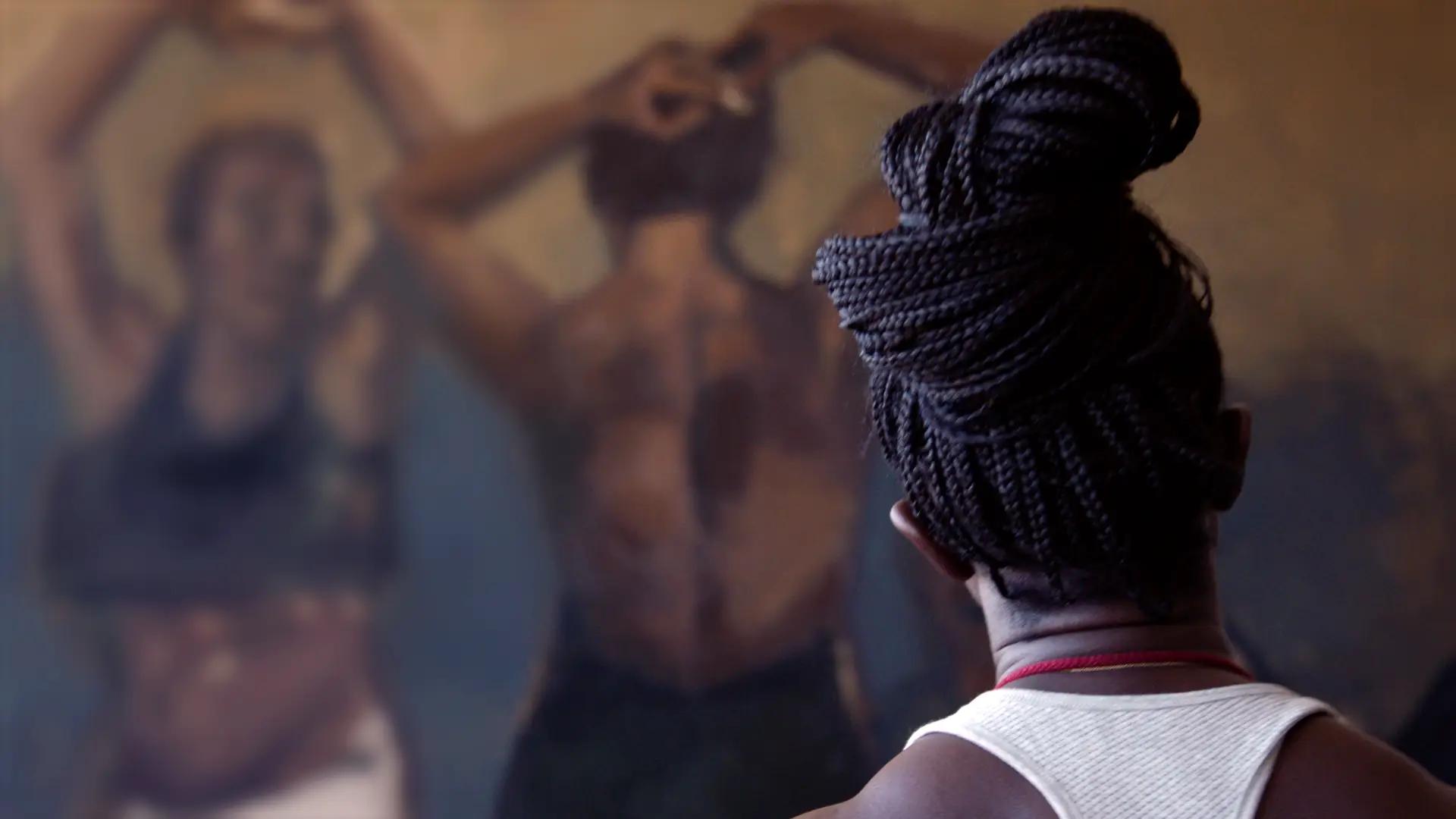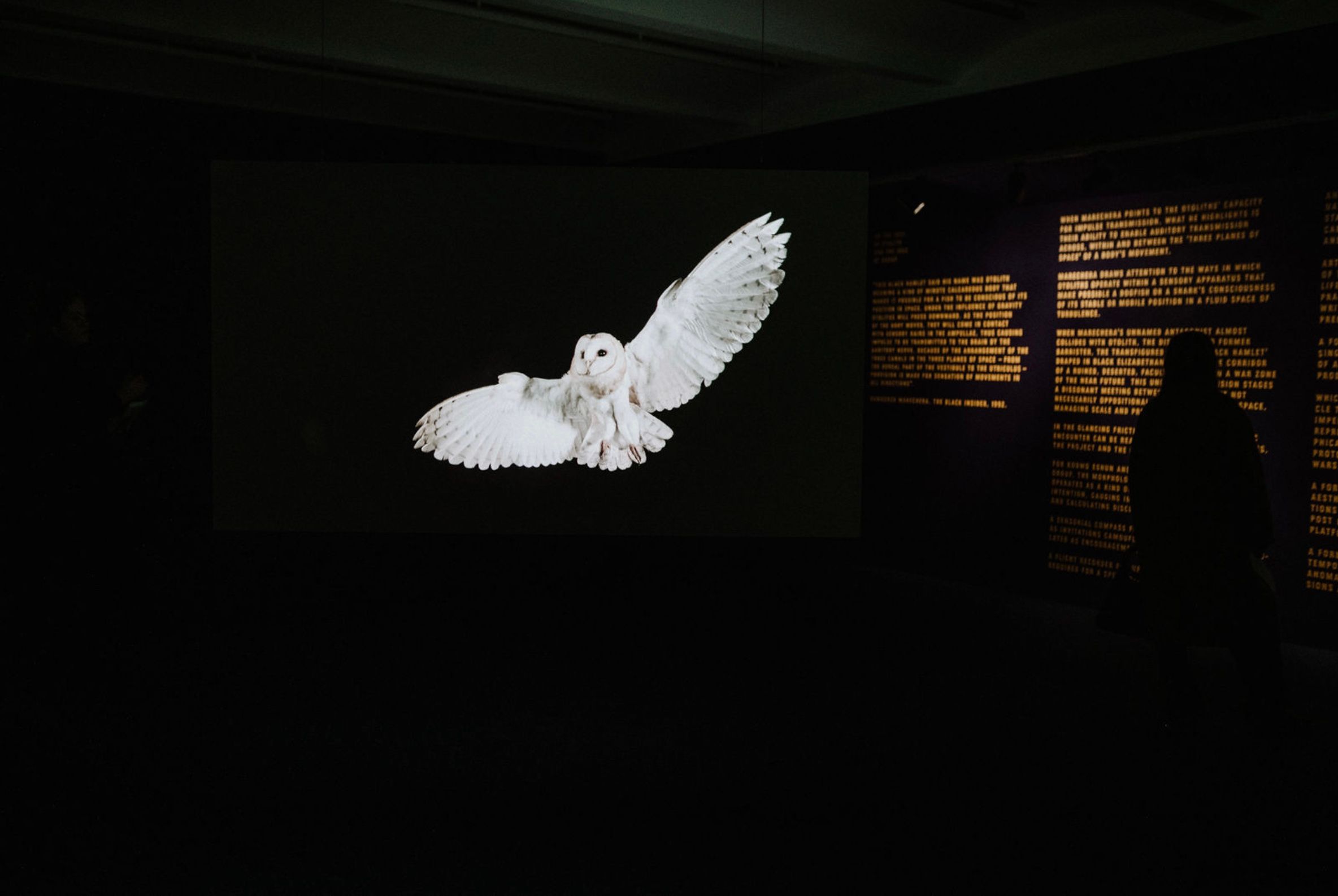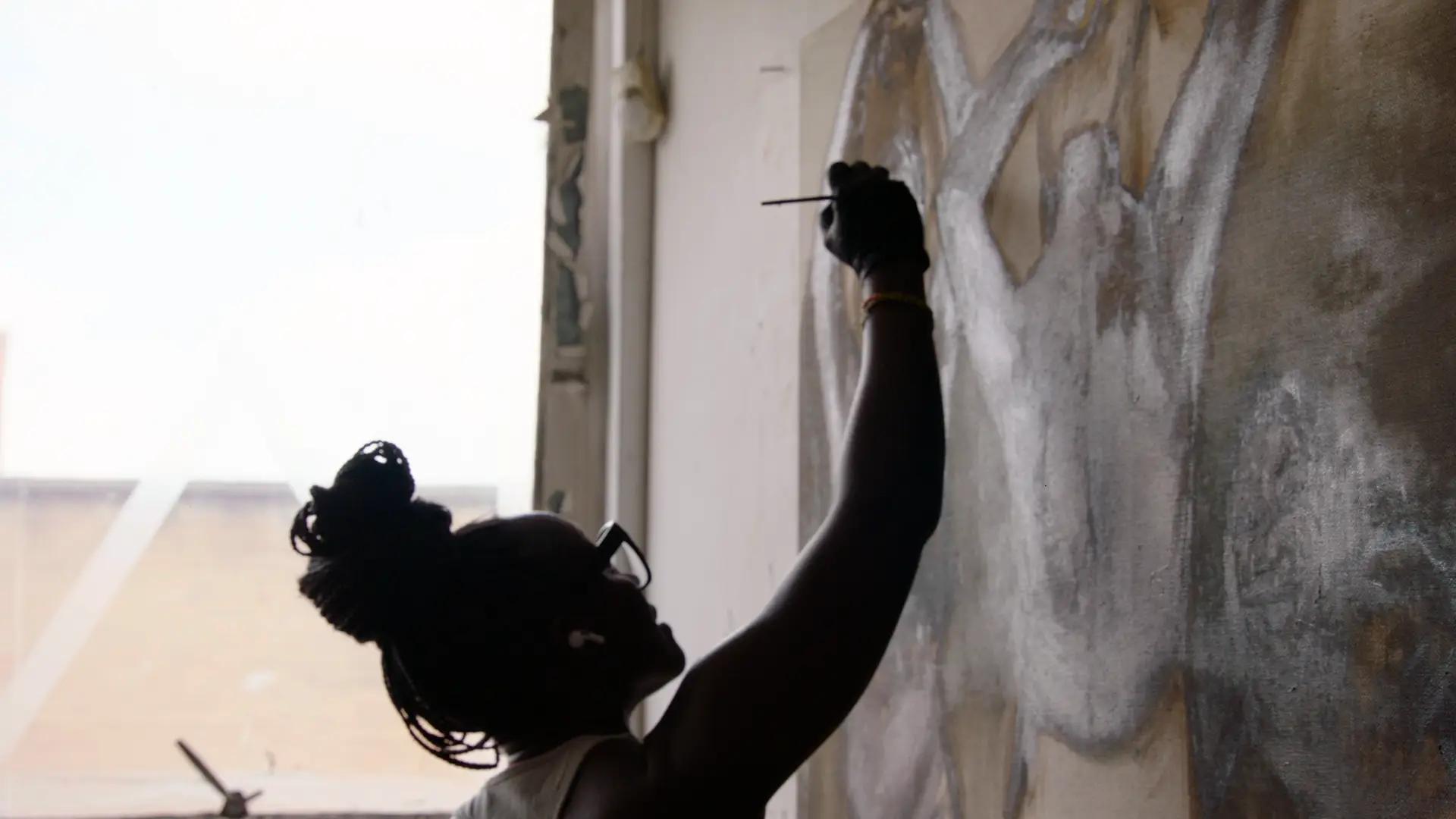What the Owl Knows (2022) is inspired by the desire to shift the focus away from the painter as the object of attention and towards the quality of attention that the painter gives to her work. What the Owl Knows strives for a poetics of recursion, in which the viewer attends to the digital video as it attends to the artist Lynette Yiadom-Boakye as she attends to her practice.
Attention to the recursive rings in duet with a series of scenes in which Yiadom-Boakye appears as an isolated figure, silhouetted in the sodium light of streetlamps, unobligated to the camera, she walks in familiar parks, housing estates, in the quiet memory worlds of a London cityscape. As Yiadom-Boakye reads from her poems, each rearranged for and through the video, the constrained economy of introspective expressionism increasingly determines the staging.
Overriding documentary cinema's call for explanations, opens up an abyss of meaning that allows for a heightened state of intuition and suggestion through video's recourse to the deviant drama of poetic language. Oscillating between the intimacy of the interior of the studio and the drama of the outdoor scenes takes on the structure of a feeling whose interplay refers to the power of gathering in the medium of video. In the encounter between painting and poetry, the movement of the video from day to night transfers Yiadom-Boakye's nocturnal thoughts from the light to the dark and back. To listen to the light of night is to hear the night of the day. It is to sense the ceremony of the medium of video, which convenes a meeting between the immortality of painting, the dead of poetry and the life of the voice.
The Otolith Group's attention to shifting expectations is palpable in the vivid allegory that appears at the center of What the Owl Knows, Lynette Yiadom-Boakye's text Plans of the Night, the animated fable between an owl and a dove sees the dove as an engineer of her own descent, falling into her own trap.
55 minutes, HD video/ colour / sound.


